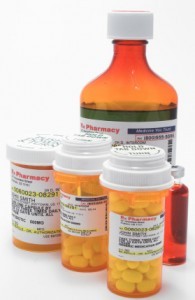10 Tips For Using Antibiotics Properly And Safely
Antibiotics are one of the potentially life-saving drugs that have revolutionized modern medicine. It is used to treat infections caused by bacteria and some other parasites. Prior to the discovery of antibiotics, many people would die from bacterial infections that are considered minor these days. It is therefore not surprising that at least one or two types of antibiotics feature on the top 10 list of most prescribed drugs in the United States. But antibiotics can be ineffective, harmful and even deadly if it is not used properly.
Selecting the right antibiotic
Not all antibiotics are the same. There are different classes of antibiotics which are effective against different species of bacteria and other parasites. Therefore selecting the appropriate antibiotic for the infection that you have is essential. Failure to do so can mean that the bacterial infection is left untreated and it can worsen. You need to see a doctor who has the knowledge to assess your infection and choose the right type of antibiotic. Do not use ‘old’ antibiotics that you have from a previous infection. It may not be the right type for your current problem.
Read the package insert carefully
As with any drug, you should read the package insert carefully before commencing with the medication. Take special note of the proper dosage and contraindications. It can sometimes be a matter of life and death. Contraindications are situations where you should not be using a drug or use it very cautiously as there may be certain risks. If you have not informed your doctor about a condition that you have which is mentioned under contraindications then you should do so immediately, even before taking the first dose.
Completing the entire course
The entire course of antibiotics should be completed as directed. It is important to take every pill even if you are feeling better midway through the course. Although the bacterial population may be diminishing and your symptoms are abating a few days after starting the antibiotic, by stopping the it prematurely you run the risk of the infection recurring. It may return worse than before and be difficult to treat the second time around. Never try to save a few pills for the next time that you are ill.
Never miss a prescribed dose
The dosage prescribed by your doctor or pharmacist and indicated on the packaging is the optimal therapeutic dose for your condition. Using less than the prescribed dose can be risky. It reduces the effectiveness of the antibiotic and can allow the bacteria a chance to survive where it may worsen your condition. Missing the prescribed dose contributes to bacterial drug resistance especially if you do not complete the entire course. What may have started as a minor infection can turn out to be very serious and difficult to treat. Co-ordinate your antibiotic intake with meal time so as not to forget a dose.
Do not share antibiotics
Antibiotics that are prescribed for you should only be used by you. Never share your antibiotics with another person and never use another person’s prescribed antibiotics. Sharing means that you will be using less than the required dose and you could be using the wrong type of antibiotic. Even if the name of the antibiotic is the same as those needed by another person, the strength may be different. Sharing prescription medication is particularly dangerous for children, pregnant women, the elderly and people with pre-existing diseases or those using other drugs.
Expect digestive side effects
Antibiotics are very effective drugs for infections but it is not without side effects like most prescription medication. These side effects can vary depending on the type of antibiotic, dose and individual sensitivity. Some people may experience more severe side effects than others. Digestive symptoms are quite common side effects from using antibiotics. It can range from mild nausea, to severe abdominal pain and diarrhea. These side effects should subside once you stop the antibiotic but speak to a doctor once you notice it. Never stop an antibiotic prematurely unless your doctor says so.
Ask about probiotics
If you are experiencing digestive symptoms or have a history of digestive symptoms from using antibiotics, you should speak to your doctor and pharmacist about using probiotics. These are capsules that contain bacterial spores to replace the normal intestinal flora (‘good bowel bacteria) that may be destroyed by the antibiotics. When the normal intestinal flora is compromised, you may develop symptoms like diarrhea which is then more correctly referred to as antibiotic associated diarrhea (AAD). Not all probiotics are the same and your pharmacist will be able to advise you accordingly.
Follow up after completion
Your doctor will advise you whether it is important to follow up with him/her after you have completed your course of antibiotics. A follow up consultation is usually not necessary for mild infections that are easily treated and where the symptoms have resolved completely. However, if you symptoms are worsening or not resolving then you need to follow up with your doctor. A repeat course of the antibiotic may be necessary or another stronger antibiotic and other medication could be required. Delaying a follow up consultation can jeopardize your health.
Beware of worsening or new symptoms
It is important to monitor your own progress during treatment since you may not be able to see your doctor daily. Antibiotics may not immediately bring about relief in the first or second day of use but the symptoms that are rapidly worsening or new symptoms that arise could be a warning sign. These symptoms could be from the infection itself or it could be due to the antibiotics. Only your doctor will be able to assess your condition and determine whether these symptoms need further treatment. Never stop your antibiotics if symptoms worsen or new symptoms arise without first speaking to your doctor.
Generics, alternatives and counterfeit drugs
Always speak to your doctor and pharmacist about cheaper options for the drug that you have been prescribed if affordability is an issue. Generics are cheaper versions of brand name drugs but it is important that you use the right generic when it is available. Never consider an alternative unless your doctor approves it. Also be careful about buying prescription drugs outside the proper channels, especially if you are purchasing it from another country. It could be fake drugs, you may be breaking the law and buying drugs that are not effective or even deadly.



